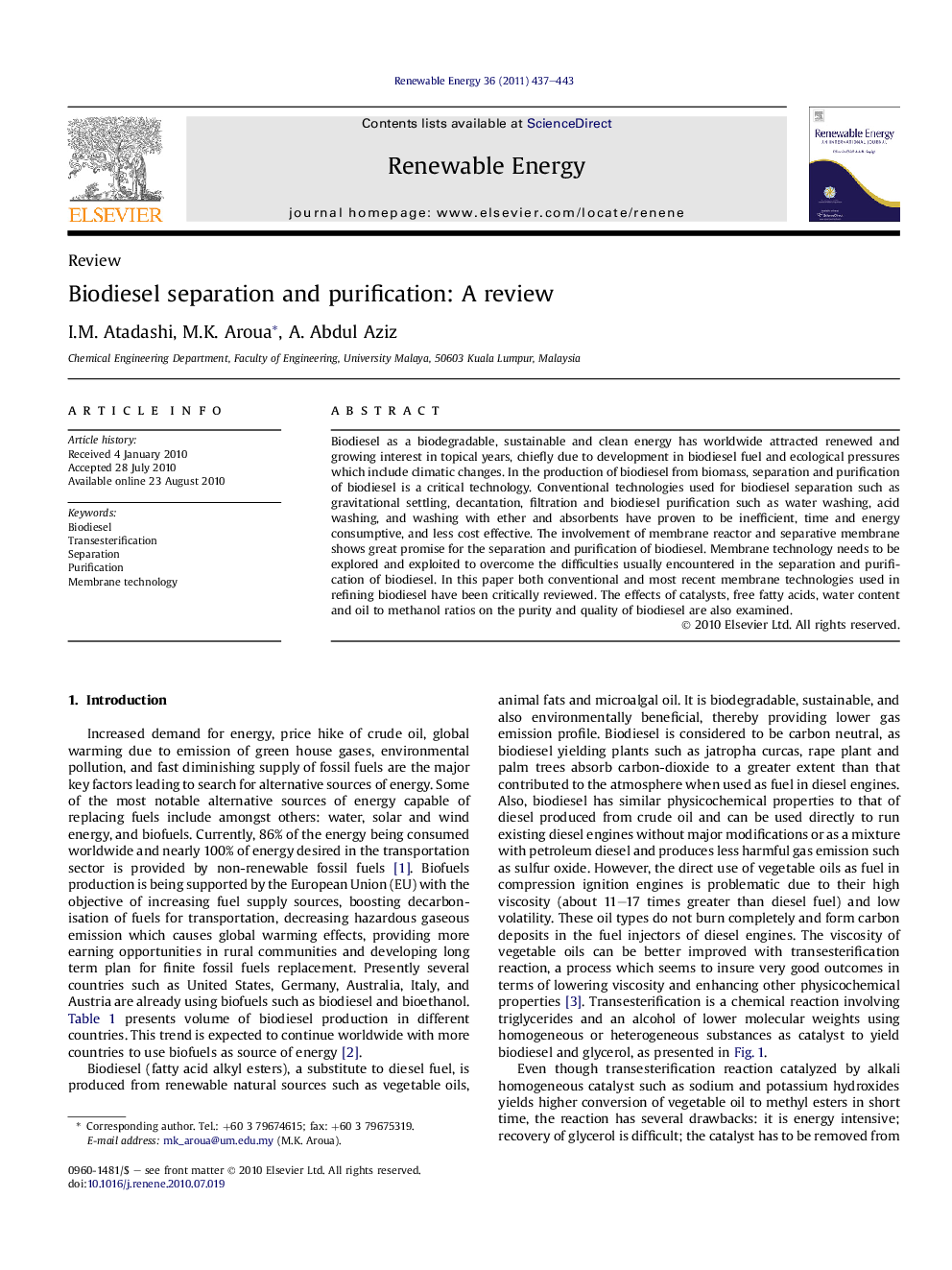| Article ID | Journal | Published Year | Pages | File Type |
|---|---|---|---|---|
| 301602 | Renewable Energy | 2011 | 7 Pages |
Biodiesel as a biodegradable, sustainable and clean energy has worldwide attracted renewed and growing interest in topical years, chiefly due to development in biodiesel fuel and ecological pressures which include climatic changes. In the production of biodiesel from biomass, separation and purification of biodiesel is a critical technology. Conventional technologies used for biodiesel separation such as gravitational settling, decantation, filtration and biodiesel purification such as water washing, acid washing, and washing with ether and absorbents have proven to be inefficient, time and energy consumptive, and less cost effective. The involvement of membrane reactor and separative membrane shows great promise for the separation and purification of biodiesel. Membrane technology needs to be explored and exploited to overcome the difficulties usually encountered in the separation and purification of biodiesel. In this paper both conventional and most recent membrane technologies used in refining biodiesel have been critically reviewed. The effects of catalysts, free fatty acids, water content and oil to methanol ratios on the purity and quality of biodiesel are also examined.
